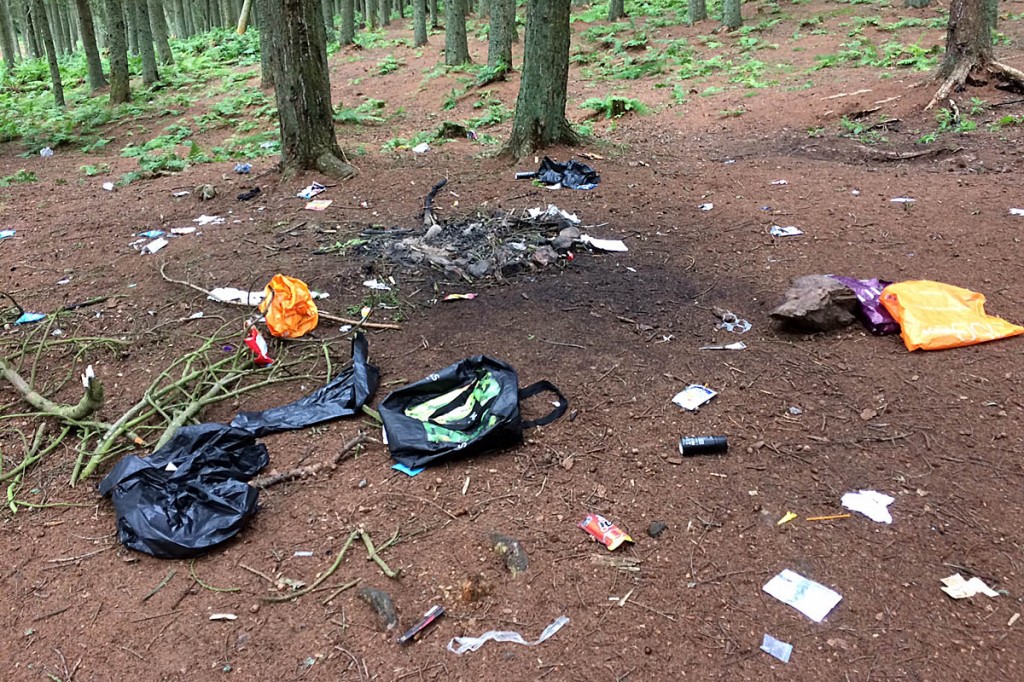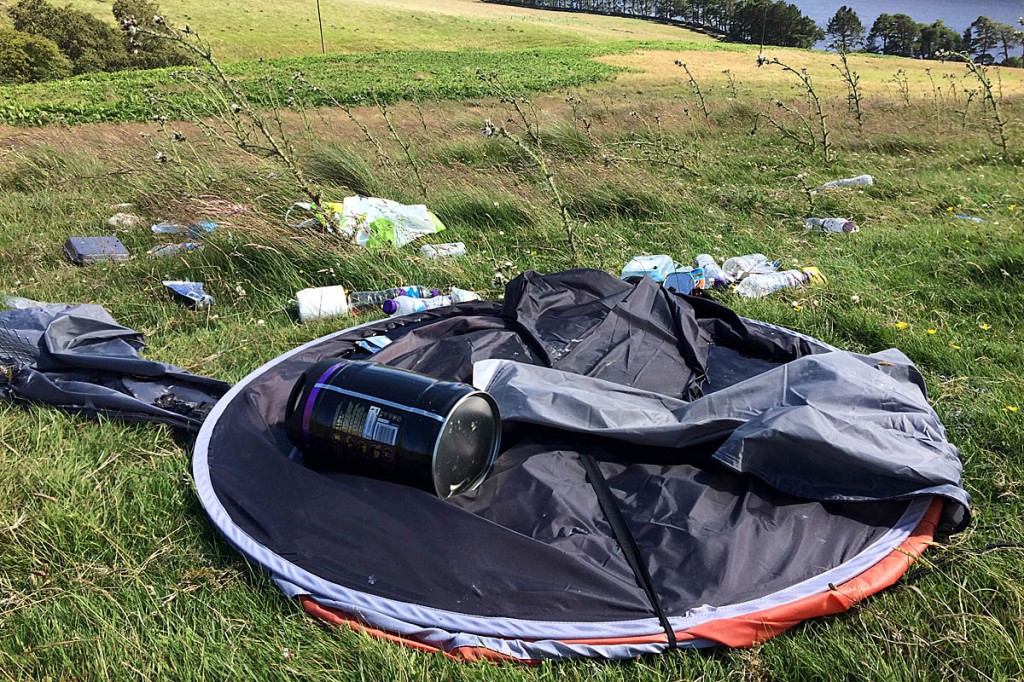Scotland’s mountaineers are pitching in with a campaign against the growth of what they call ‘dirty camping’.
Mountaineering Scotland said most hill-goers leave little or no trace when they wild camp, but the increase in problem camping at some locations needs action, it added.
The organisation, which represents climbers, hillwalkers, mountaineers and ski-tourers north of the border, is calling for a multi-agency approach to work with communities on local management solutions, along with a public information campaign to educate people about their responsibilities as well as their rights.
Dirty campers are causing problems by leaving rubbish, fire damage and even whole campsites in their wake.
In a summer which has seen the problem of dirty camping becoming increasingly common in rural hotspots across the country, Mountaineering Scotland’s access and conservation officer Davie Black said: “Antisocial camping can and should be dealt with. Hotspots for dirty camping are usually known to local authorities.
“We call for all those who are concerned about this to come up with local management plans that identify the problem and its causes, and identify the resources needed to tackle it.
“There is already legislation covering anti-social activity. What we need is coordination of resources to enforce it.”
Mountaineering Scotland said roadside camping is where the problem is worst, where people pitch camp close to where their car is parked, and leave behind plastic and glass, burnt ground and even camping kit and human waste.
It’s a problem that angers local people who live and work in affected areas, other visitors to the areas, and responsible hill-goers and campers everywhere.
Mr Black said: “It is easy to associate all informal camping with rubbish and pollution, but the truth is different. Walkers and climbers going into the hills – wild camping – tend to leave little trace of where they have been.

Rubbish and fire damage at an abandoned campsite near Bonaly Reservoir in the Pentlands. Photo: Pentlands Regional Park
“Roadside campers who leave no trace are also ‘invisible’. But the trail of dirty roadside camping is only too visible and is what gives all campers a bad reputation.”
Wild camping is usually done well away from roads and buildings, is lightweight, done in small numbers and only for two or three nights in any one place. Roadside camping is not usually considered wild camping, although it does take place and is lawful if done responsibly.
Stuart Younie, chief executive of Mountaineering Scotland, said: “We have seen a lot of camping this summer and it’s great to see people getting out to enjoy Scotland’s stunning scenery and the outdoor lifestyle, with all the health benefits it brings. But the downside has been the number of campers ruining beauty spots for other visitors and those who live there.
“We have enlightened legislation that allows people the freedom to camp and at the same time provides for tackling anti-social behaviour where it is required – although we acknowledge that the police and local authorities don’t have the resources to monitor every hill and glen.
“Mountaineering Scotland does what it can to promote responsible behaviour. We think greater emphasis should be placed on government agencies, councils and national organisations working together with communities to develop local management solutions. We know where the pressure spots are.
“Almost 15 years on from the publication of the Scottish Outdoor Access Code we think it’s also time to consider a public information campaign to remind people about their rights and responsibilities, including the impact that irresponsible camping has on local people and the environment.”
Through its Tak It Hame campaign Mountaineering Scotland also urges everyone who loves walking and climbing in the hills to avoid littering and to pick up any litter they find.

Margaret
19 August 2019Unintended consequences of Freedom to Roam.
Eddy
20 August 2019It angers me that these so called campers proclaim they like the beauty of an area ( they do this by camping there) and leave trash behind to make it a mess for the rest of us it will end up with the Scottish government taking away the right to roam like the rest of the uk then no one will be able to fully enjoy the beauty of Scotland
Peter
27 August 2019After overnighting (and leaving no trace) at the beautiful RSPB Loch Garten reserve last year, I was somewhat shocked to come across a party of four, who had also obviously stayed overnight, pack everything into their vehicle except for a large sack of empty tins and bottles. They then drove off, leaving the rubbish on the ground in the car park. They were in a car!! Surely they could take the rubbish with them and dispose of responsibly? Obviously, this was too much to expect.
simon
17 June 2021This is a problem - no doubt.
This "dirty camping" campaign is having an effect - a couple of weeks ago, when camping on a reasonably remote bank of the River Lyon, a man called across "take your rubbish when you leave". He needn't have worried - we never leave a trace. It made the kids a little anxious. (are we allowed to be here?? etc etc). Sorry, but I felt midly offended. (aye, a bit sensitive at times)
Just be aware that this might be the start of a campaign to curtail access rights generally - expanding the no camping zones etc. Maybe not. Who knows?